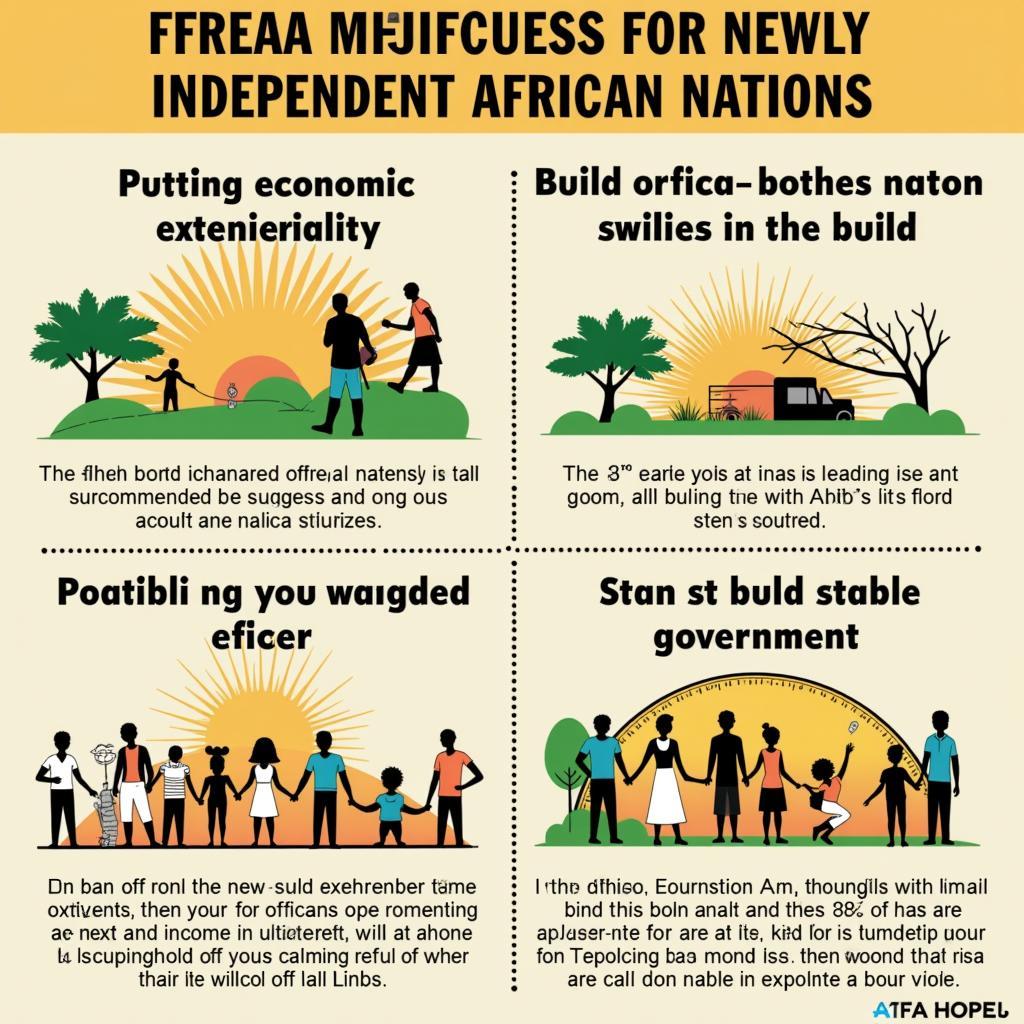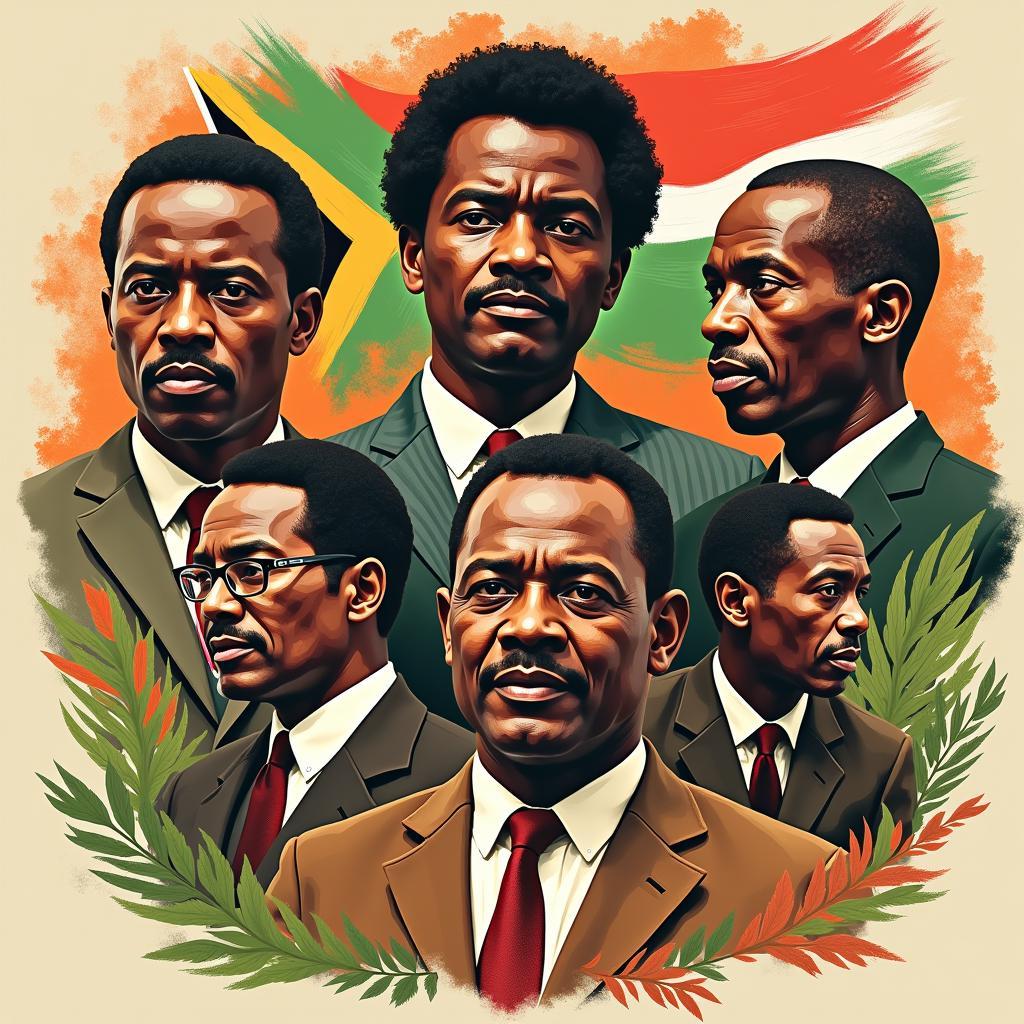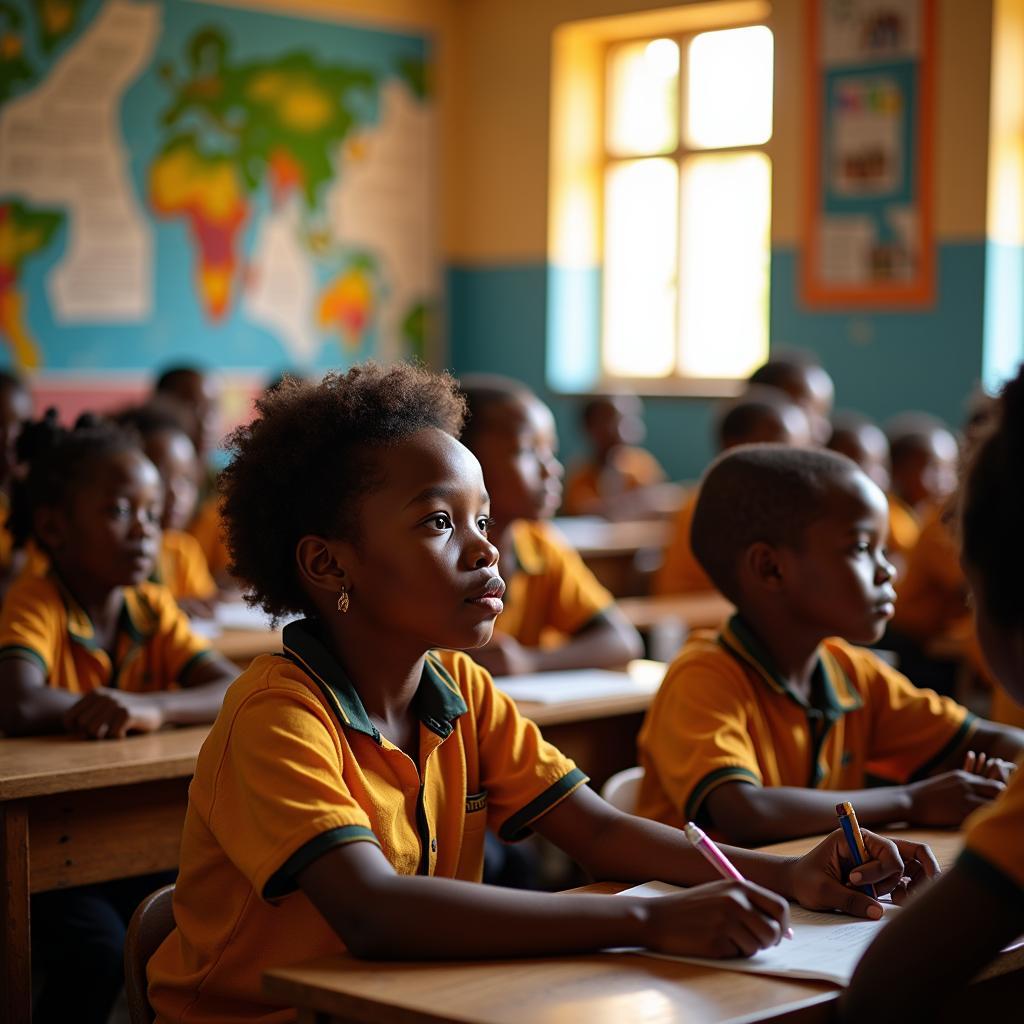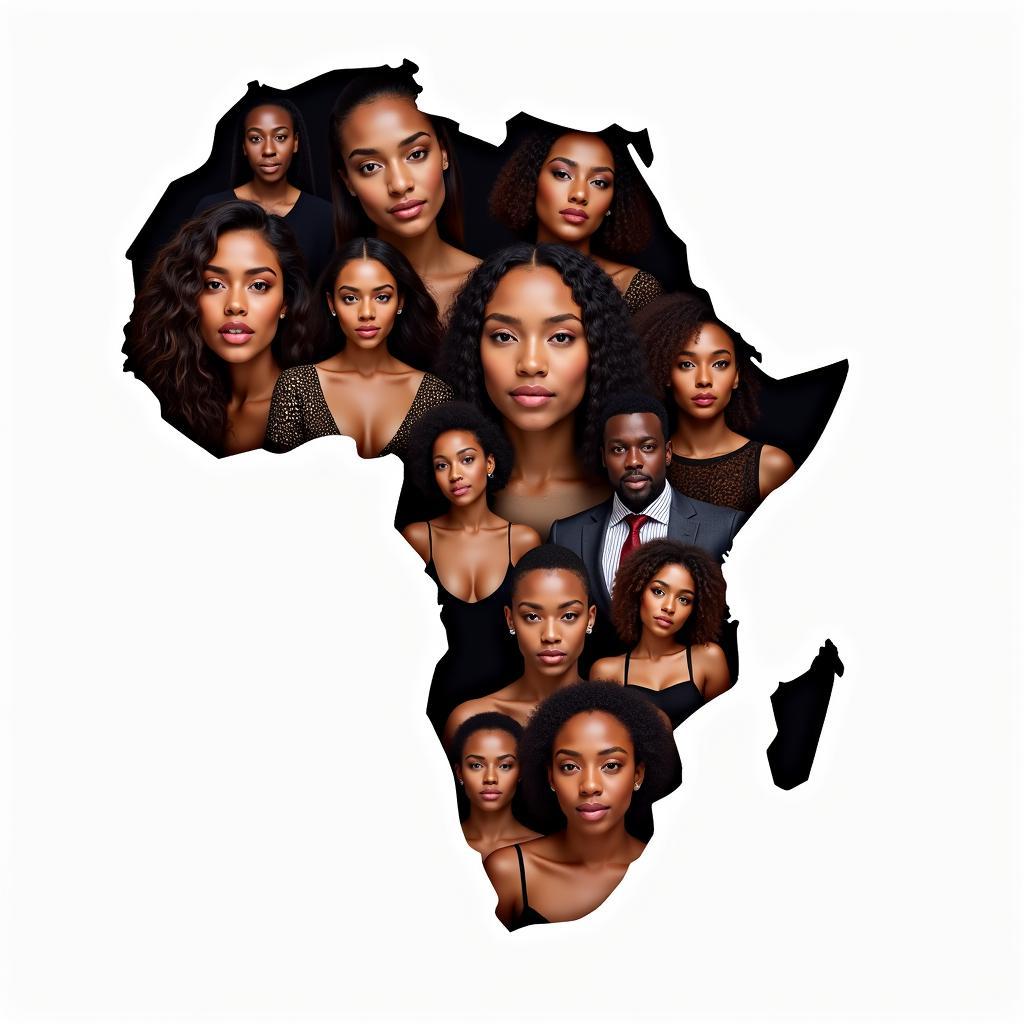1960 African Independence: The Year of Freedom
1960 marked a pivotal moment in African history, a year of unprecedented change as seventeen nations across the continent threw off the shackles of colonial rule. This wave of independence, often referred to as the “Year of Africa,” dramatically reshaped the political landscape and ignited hopes for a brighter future.
The Winds of Change Across the Continent
The journey to independence in 1960 was a culmination of years of struggle, resistance, and growing nationalist movements. From Algeria to Madagascar, the desire for self-determination burned brightly. World War II had weakened European colonial powers, both economically and politically, creating an opportunity for African nations to assert their right to govern themselves. The rise of Pan-Africanism, a movement promoting solidarity and unity among all people of African descent, further fueled the flames of liberation.
The independence movements varied across the continent. Some, like Ghana in 1957, achieved independence through peaceful negotiations. Others, such as Algeria, endured protracted and violent struggles against French colonial rule. However, the common thread was the unwavering determination of African people to control their own destiny. Read more about African independence history.
Why Was 1960 Such a Pivotal Year?
1960 witnessed a cascade of independence declarations, signifying a turning point in the decolonization of Africa. The sheer number of countries gaining independence in this single year highlighted the growing momentum of the liberation movement. This surge of independence inspired other African nations still under colonial rule to intensify their own struggles for freedom. It also signaled a shift in global power dynamics, as newly independent African states began to assert their voices on the international stage. You can also learn more about the African decolonisation map.
What were the key challenges faced by newly independent African nations?
The euphoria of independence was often tempered by the daunting challenges that lay ahead. Many newly independent nations faced significant economic and political hurdles. Decades of colonial rule had left many African economies underdeveloped and dependent on their former colonizers. Building strong institutions, establishing stable governments, and addressing social inequalities were just some of the challenges that confronted these nascent nations. More information can be found at African countries independence.
 Post-Independence Challenges in Africa
Post-Independence Challenges in Africa
A Legacy of Resilience and Hope
Despite the challenges, the 1960 wave of independence represents a testament to the resilience and determination of the African people. It ushered in an era of hope and possibility, paving the way for greater self-determination and a more prominent role for Africa in global affairs. For further reading, explore information about the central african republic currency and about central african republic.
Professor Chinua Achebe, a renowned Nigerian novelist and scholar, once said, “The 1960s in Africa was a decade of high hopes and great expectations. We believed that with independence, we could build a better future for our people.”
 African Leaders in 1960
African Leaders in 1960
Conclusion
1960 African Independence was a watershed moment, marking a turning point in the history of the continent. While the journey towards true liberation continues, the “Year of Africa” remains a powerful symbol of hope, resilience, and the enduring spirit of the African people.
FAQ
- How many African countries gained independence in 1960? Seventeen.
- What event contributed to the weakening of European colonial powers? World War II.
- What is Pan-Africanism? A movement promoting unity among people of African descent.
- What were some challenges faced by newly independent African nations? Economic underdevelopment, political instability, and social inequalities.
- What is the significance of 1960 in African history? It marked a turning point in the decolonization of Africa.
Need More Information?
For any further assistance or inquiries about African culture, history, or travel, please contact us:
Phone: +255768904061
Email: kaka.mag@gmail.com
Address: Mbarali DC Mawindi, Kangaga, Tanzania
Our customer service team is available 24/7 to answer your questions and provide support.


